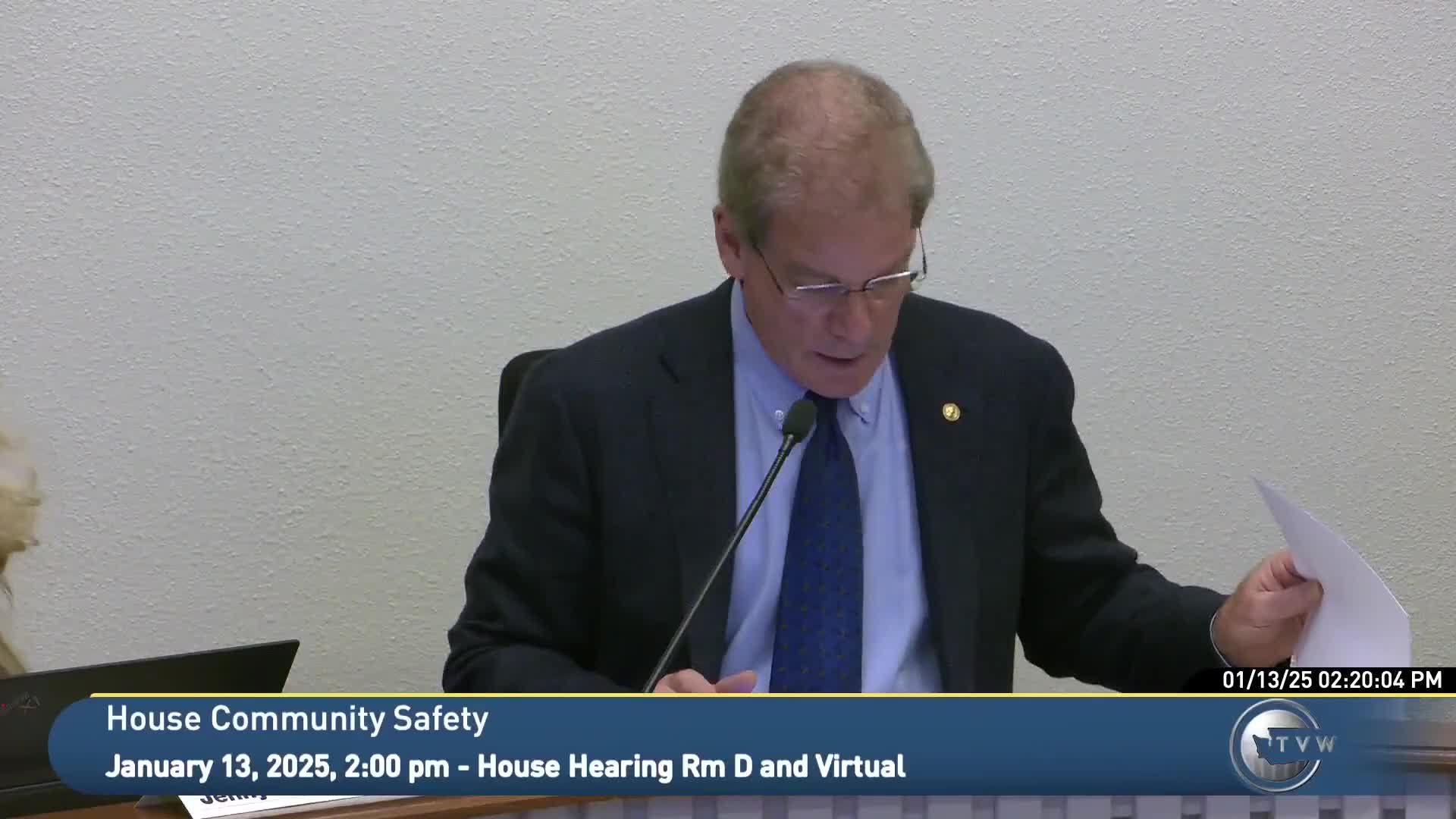Committee hears bill to clarify hate-crime standard by adding ‘in whole or in part’
Get AI-powered insights, summaries, and transcripts
Subscribe
Summary
Representative Cindy Ryu told the Community Safety Committee that House Bill 1052 would amend Washington’s hate‑crime statute to add “in whole or in part,” allowing juries to find bias was a contributing motive even if it was not the only motive.
Representative Cindy Ryu, sponsor of House Bill 1052, told the House Community Safety Committee that the bill would clarify Washington’s hate‑crime statute by adding the phrase “in whole or in part,” allowing juries to find bias was a contributing motive even if it was not the sole motive.
The change, Ryu said, “ensures that the jurors understand that the defendant's bias does not need to be the only motive,” and seeks to hold defendants accountable when bias is a contributing factor in assaults, property damage or threats.
Corey Patton, staff to the committee, summarized the bill for the record and noted that under existing law a person commits a hate‑crime offense when they maliciously and intentionally commit one of three specified acts because of their perception of protected characteristics; the bill would add the language “in whole or in part” to that statutory "because of" requirement.
Opponents including a remote witness identified as Sharon Damoff argued the bill is too broad and risks criminalizing thoughts or motives rather than conduct. “Prosecutors will pose as mind readers,” Damoff testified, saying the amendment could be abused and likening its effects to examples she cited from abroad.
Yesenia Manzo, the hate‑crimes prosecutor for King County, testified in support and described two trial examples she said illustrated the problem prosecutors face under the current wording. In one, a defendant who repeatedly used racial slurs, threatened violence and later testified that “racism was not illegal,” was acquitted, Manzo said, because jurors found a non‑bias motive (sleep deprivation) could explain the conduct. In another, Manzo said a case of repeated, targeted slurs and damage to the apartment of two transgender women produced jury uncertainty about the statutory “because of” phrase despite strong factual evidence of bias.
Arielle Novick, associate regional director for the Anti‑Defamation League’s Pacific Northwest office, testified in support and framed hate crimes as “message crimes” that affect victims and the broader community. Novick noted the group’s nationwide work on hate‑crime laws and said the bill would allow prosecution of mixed‑motive incidents.
Members asked questions about prosecutorial burden and safeguards. Representative Dan Griffey asked whether actions such as burning a flag on private property would qualify as a hate crime; Manzo replied that it would depend on the investigation and the defendant’s motive, and that political motivations would not generally qualify under the state felony hate‑crime statute (though some municipal codes, she said, address politically motivated harassment).
Ranking Member Jenny Graham raised concerns about possible weaponization of the statute and about specific statutory language that allows jurors to infer intent in certain circumstances; Manzo and other witnesses said existing protections such as the presumption of innocence remain and that some statutory provisions have long existed to allow jurors to infer motive from specific conduct (cross burnings, nooses, etc.).
Chair Roger Goodman noted the committee was holding the bill’s public hearing and that the item will be listed for executive action later in the week; no committee vote was taken at the hearing.
The committee heard four witnesses on the bill in person or remotely and discussed examples and drafting questions; no amendment votes or formal actions were taken on HB 1052 during the session.
